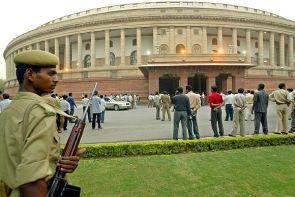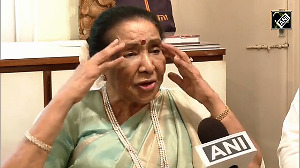 After gay sex, there are now moves to decriminalise suicide attempts under a bill introduced in Parliament.
After gay sex, there are now moves to decriminalise suicide attempts under a bill introduced in Parliament.
In a major criminal law reform, the new Mental Health Care bill, 2013, introduced in Rajya Sabha, seeks to decriminalise acts of suicide and makes access to affordable mental health care a right for all.
The forward-looking bill links suicide attempt to the state of mental health of the person trying it. It explicitly states that acts of suicide will not be criminalised and those attempting suicide would be treated to be mentally ill unless proved otherwise and therefore exempted from the current provisions of Section 309 of Indian Penal Code.
"Notwithstanding anything contained in Section 309 of the IPC, any person who attempts suicide shall be presumed, unless proved otherwise, to be suffering from mental illness at the time of the bid and shall not be liable to punishment under the said Section," says Section 124 of the Bill.
The measure clarifies that the act of suicide and the mental health of the person committing the act are inseparably linked and have to be seen together and not in isolation.
The Bill lays down a proper provision for the treatment of persons attempting suicide.
It seeks to provide for mental health care for persons with mental illnesses and to protect, promote and fulfil the rights of such persons during delivery of mental health care and services.
It is the first time that the government has come up with rights based approach in the mental health law.
The Law Commission will separately recommend this amendment to the Criminal Law which would eventually be effected by the home ministry.
However, health ministry sources said the law ministry agreed on the proposed Section in the new mental health care bill to decriminalise suicide.
"It is a landmark bill which takes care of the rights of the mentally ill. It is forward looking and India needed such a law. It strongly protects the rights of mentally ill and puts a lot of onus for the welfare of the ill on the government," a health ministry official said.
The bill fills the long-standing gap in the mental health law in India after the country ratified the UN Convention on the Rights of Persons with Disabilities requiring it to harmonise its laws with those prevalent worldwide.
India had signed the convention on October 1, 2007 and it came into force on May 3, 2008.
Once the Parliament passes the Bill and it is assented to by the President, it will replace the Mental Health Act of 1987.
The new Bill guarantees several rights to the mentally ill from the right to privacy in mental health establishments to the right to dignity.
It bars inhuman practices such as electro convulsive therapy without anesthesia, sterilisation as a treatment for illness, chaining and tonsuring of heads of the mentally ill.
The Bill also provides stringent penalties for those found running unregistered mental health care establishments which would be fined with Rs 50,000 to Rs five lakh depending on the frequency of the offence.
It seeks to regulate the public and private mental health sectors and establish a mental health system integrated into all levels of general health care.
The law also provides for the Advance Directive to be furnished in writing by a person, irrespective of his mental illness, and registered with a Mental Board to be set up by the government at state and central levels.
This directive allows the individual to appoint a nominated representative to deal with the kind of treatment he wants in the case he falls mentally ill in future.
The Bill provides for a State Mental Health Authority and a Central Mental Health Authority along with a Mental Health Review Commission to regulate the sector and register institutions.










